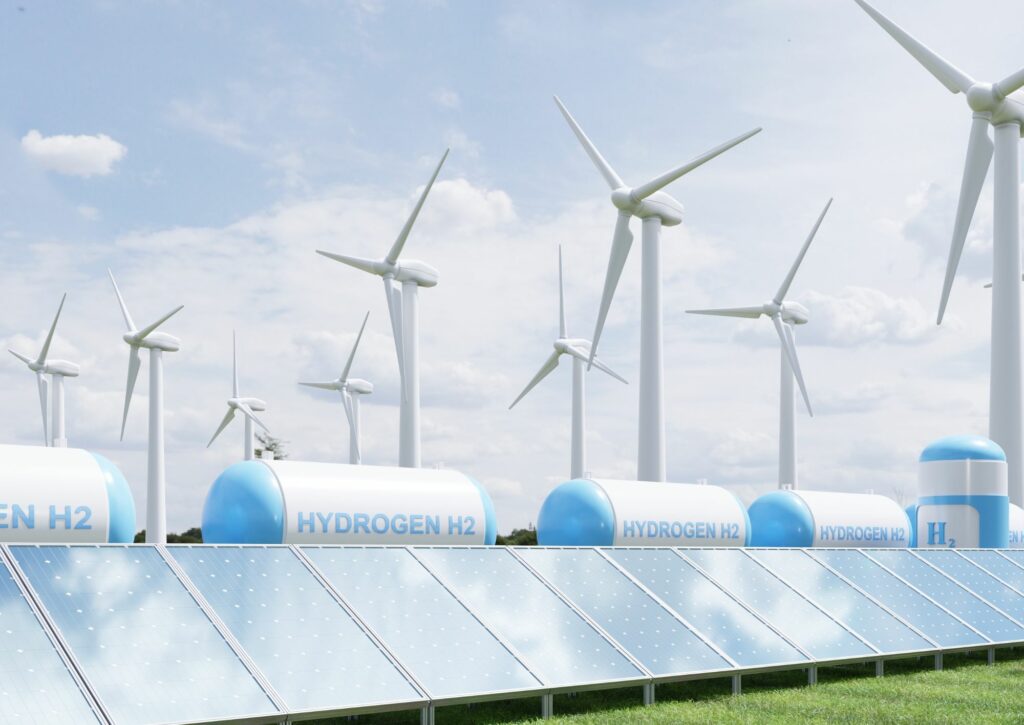The first successful tests of hydrogen-powered aircraft are already behind us. They concerned small units – e.g. the six-seater Piper, which took off from one of the British airports three years ago. Last year, a consortium of Rolls-Royce and easyJet began ground tests. The companies intend to jointly develop a full-size passenger aircraft powered by this fuel.
Although the aviation industry that intends to use hydrogen as a fuel still has to solve many problems, the pace of work and their positive results allow us to believe that the hydrogen revolution in aviation will come faster than we thought a few years ago. But why is its introduction so important for the entire sector? What advantages make hydrogen potentially better than fossil fuels?
Hydrogen vs. electrification. What will save aviation?
When we talk about technologies enabling the transition from fossil fuels in transport, we usually mean electrification. However, this is not possible in all areas. Most problems are related to the electrification of aviation. Meanwhile, it is one of the most significant sources of greenhouse gases – according to some estimates, it is responsible for up to 3 percent of total emissions.
Sytuację może uratować energetyka wodorowa. Produktem spalania wodoru jest tylko para wodna, która w znikomym stopniu przyczynia się do postępowania zmian klimatycznych. Produkcja wodoru jest też łatwa do zrównoważenia. Poza tym nie wymaga skomplikowanej logistyki związanej z przetransportowaniem paliwa z miejsc wydobycia do rafinerii, a następnie centrów dystrybucyjnych i hubów lotniczych – może odbywać się nawet w ich bezpośredniej bliskości.
Hydrogen energy can save the situation. The only product of hydrogen combustion is water vapor, which contributes little to climate change. Hydrogen production is also easily sustainable. Moreover, it does not require complicated logistics related to transporting fuel from extraction sites to refineries and then to distribution centers and airline hubs – it can even take place in their immediate vicinity.
Hydrogen technologies in aviation – risks and challenges
The prospect of using hydrogen energy in aviation gives hope for reducing its emissions. On the other hand, hydrogenation of this sector is associated with problems that cannot be solved yet – at least on a large scale. The most serious of them are the explosive properties of hydrogen. In this respect, this element resembles methane, which, in the amount necessary for a long flight, can lead to serious explosions.
Another problem is the costs of hydrogen production. Currently, they are much higher for fossil fuels. The situation is similar with large-scale hydrogen compression and the need to redesign planes so that they can take larger fuel volumes than before.
The future of hydrogen in aviation. What to expect?
Wodoryzacja lotnictwa nie wydaje się jedynie pieśnią przyszłości. Już teraz wielu przedstawicieli branży jest zdania, że w ciągu najbliższej dekady pierwsze samoloty wodorowe wejdą do regularnej eksploatacji – ma to stać się jeszcze przed rokiem 2035. Sygnały na potwierdzenie tych słów płyną z innych sektorów gospodarski – np. kolejnictwa i przemysłu. Uzasadnieniem nadziei mogą być także inicjatywy takie jak polska Centralna Dolina Wodorowa imienia Braci Łaszczyńskich działająca na rzecz rozpowszechnienia wodoru jako paliwa i magazynu energii.
Hydrogenization of aviation does not seem to be just a thing of the future. Many industry representatives already believe that the first hydrogen planes will enter regular operation within the next decade – this is expected to happen before 2035. Signals confirming these words come from other economic sectors – e.g. railways and industry. The hope may also be justified by initiatives such as the Polish Łaszczyński Brothers Central Hydrogen Valley, which aims to popularize hydrogen as a fuel and energy storage.
The vision of replacing aviation fossil fuels with hydrogen is now more real than ever before. The industry is on the threshold of a real revolution that may lead to the creation of zero-emission aviation and the solution of one of its most serious problems – environmental pollution and accelerating climate change.

Discover the future of fuels – learn more about hydrogen!
Did you know that hydrogen is one of the most promising energy sources of the future? If you are curious about how hydrogen can change our reality, join our journey in search of the future!

